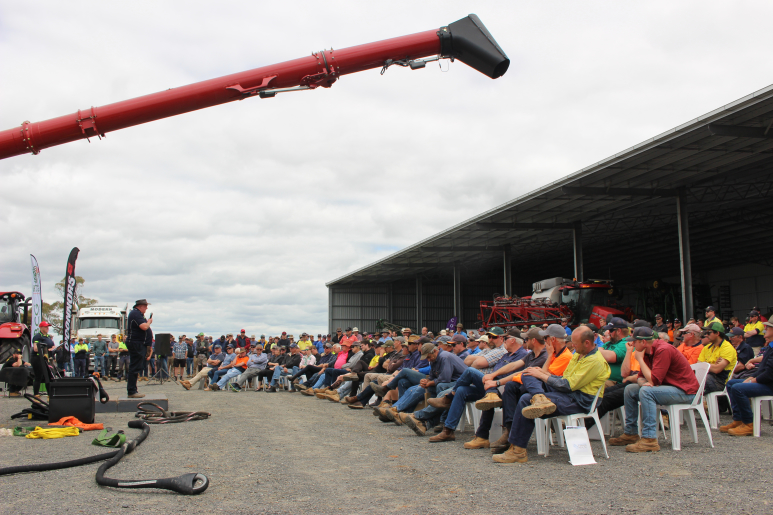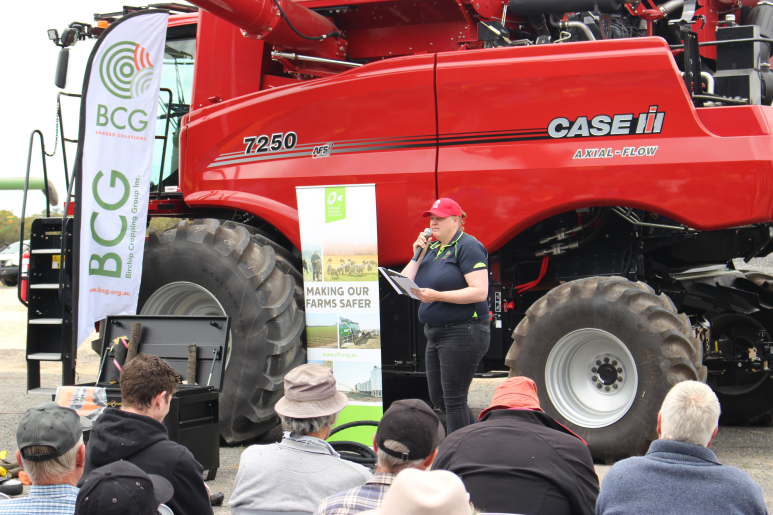More than 550 farmers and industry stakeholders last week rolled up for Birchip Cropping Group’s Safely Recovering Machinery Field Day – in what would be the most appropriate subject for the past decade.
BCG extension and communication manager Kelly Angel, who organised and facilitated the field day, said having a good plan was imperative.
Kelly said it was such a simple but effective message – reminding participants the best way to get out of a bog is not to get bogged.
She also said using chains was far from recommended as they have a high risk to safety with lots of moving parts.
“There were several key messages we wanted people to take home with them after the field day,” Kelly said before outlining them.
1. Understand the ratings of straps and shackles, for example the working load limit (WLL) and break-strength, and how to interpret these when using them for recovery.
2. Communicate to ensure all staff are trained in how to avoid getting bogged and how to use recovery equipment safely.
3. Stop and think: Before entering a paddock, calculate the risk of becoming bogged. If you do become bogged, stop. Don’t try and drive yourself out of it. Take a moment and think about how to recover the vehicle safely. Does the machine need to be recovered right away? Taking time to think before recovering machinery is often the safest option.
4. Unload as removing unnecessary weight from bogged machinery will make it easier and safer to recover.
5. Dig if it is safe to do as digging can help relieve pressure on machinery and aid in recovery.
6. Storage means ensuring recovery equipment is looked after, out of weather and stored clean.
“We thank everyone who attended the event and to our partners for working with us to bring such a relevant need-driven event together so quickly,” Kelly said.
“Thanks to VFF Making Farms Safer, WorkSafe, Warakirri Cropping, the National Centre for Farmer Health, O’Connor’s [Case IH], Emmetts [John Deere], Belle-Vue Machinery [New Holland], Horsham Heavy Towing, Blake Snake Recovery Strops and farmer Ross Johns, who hosted us.”






